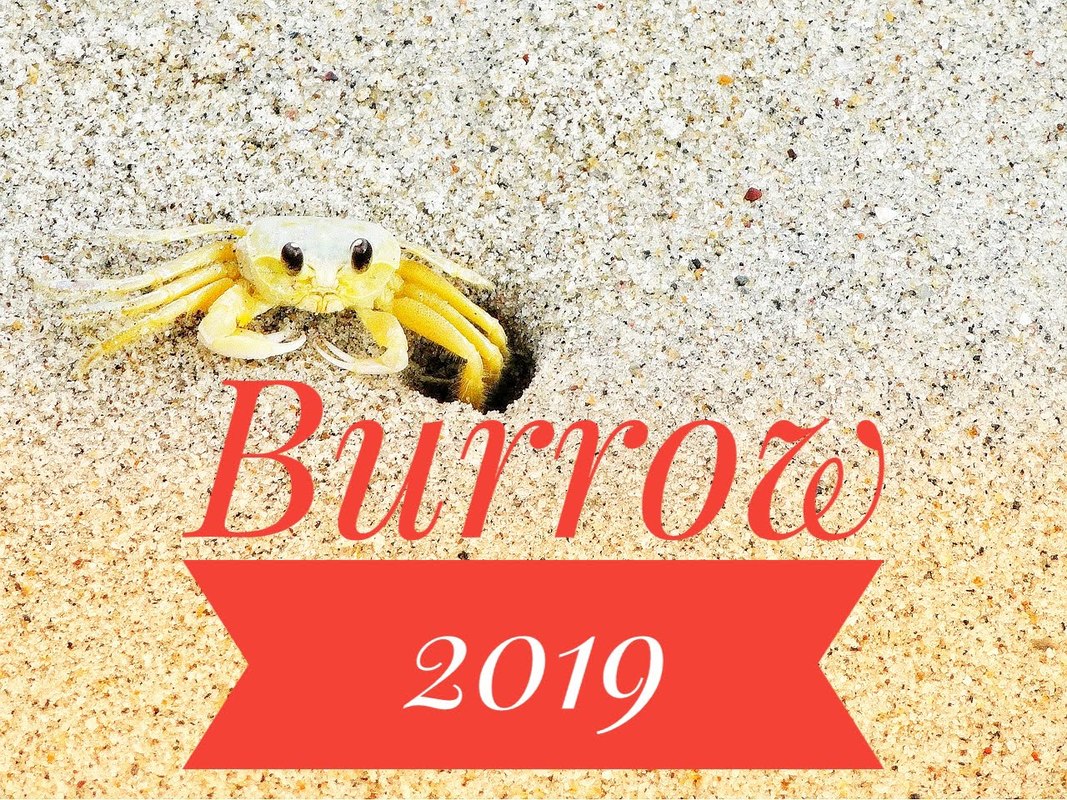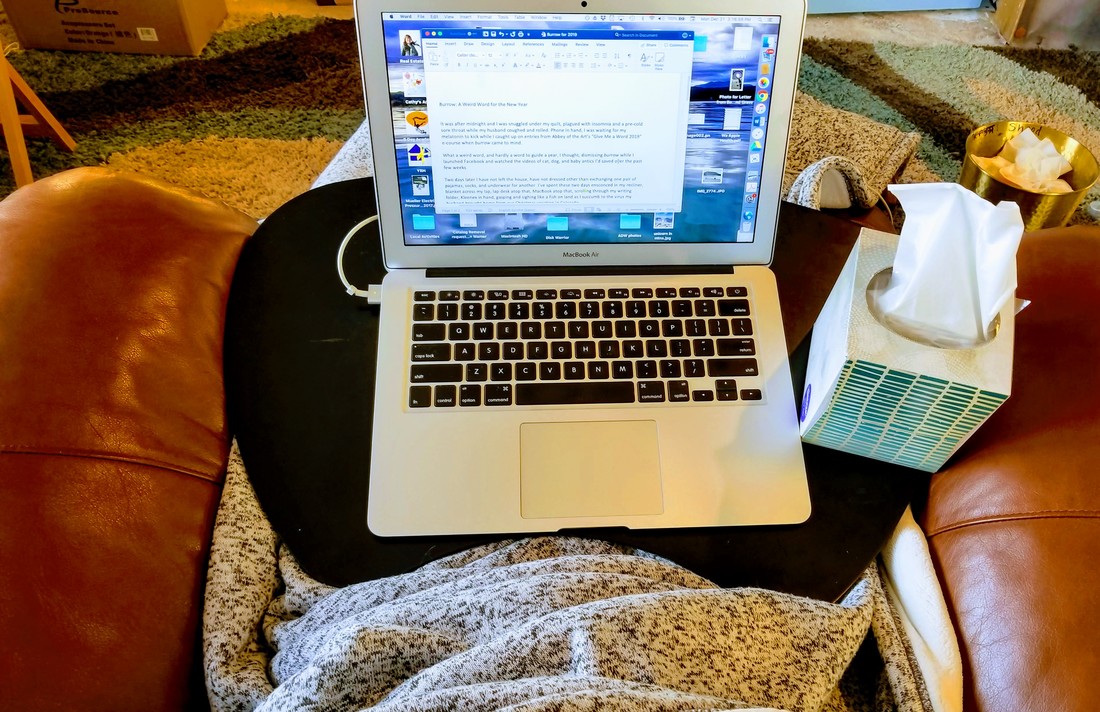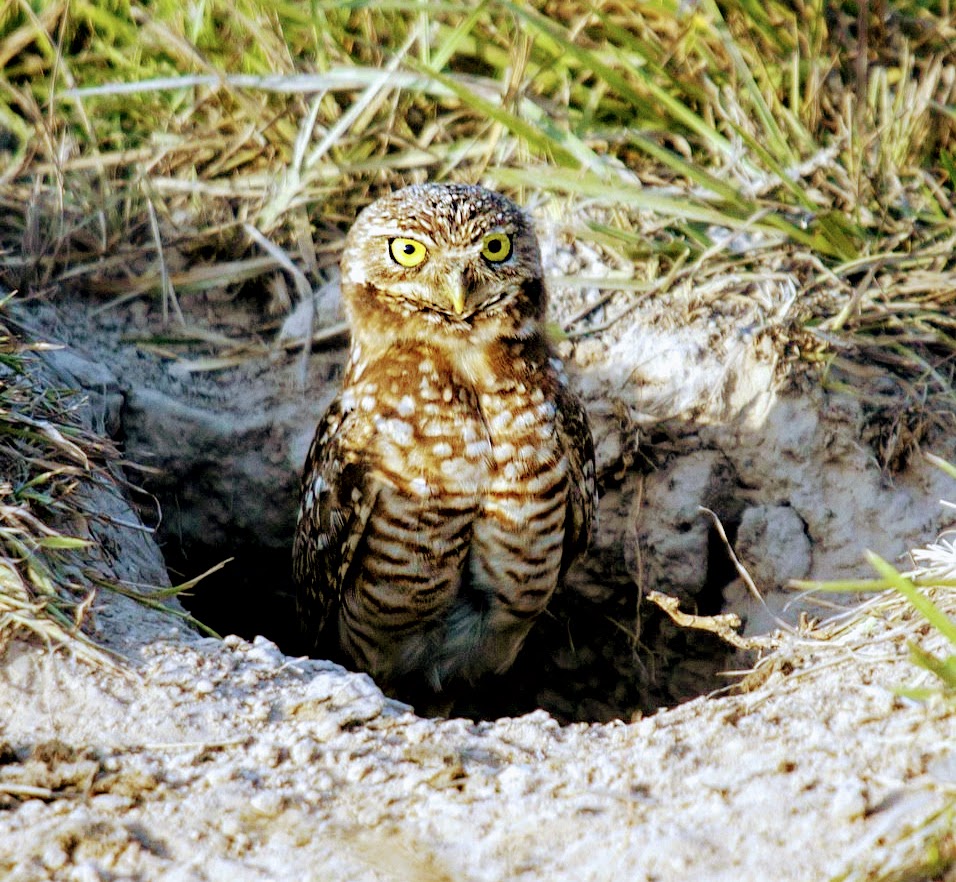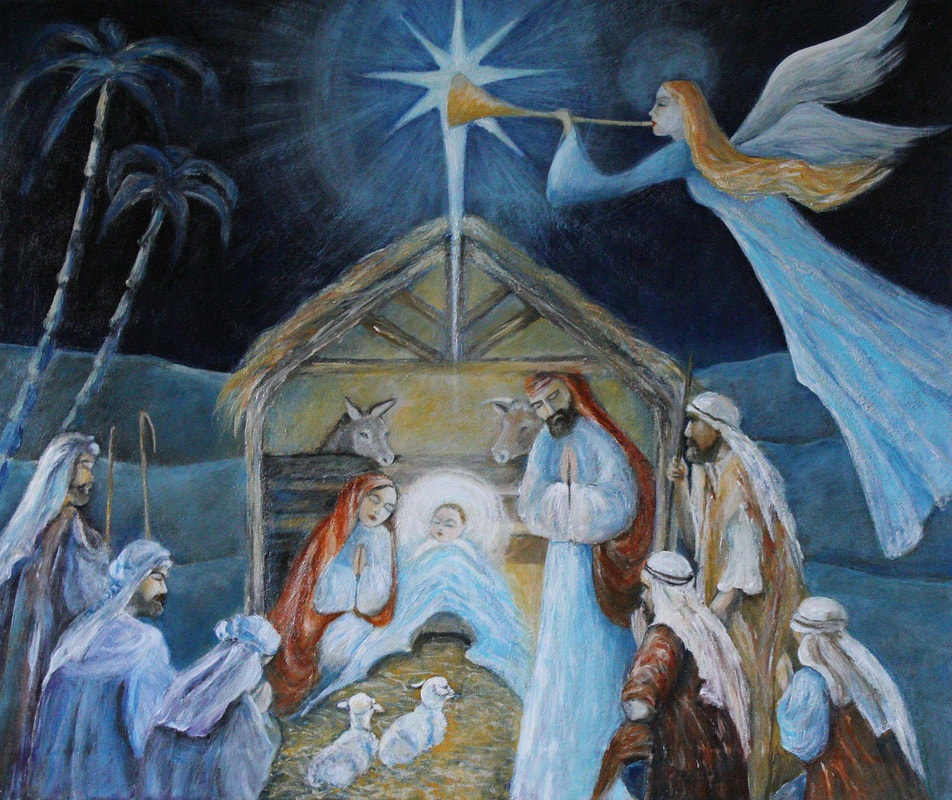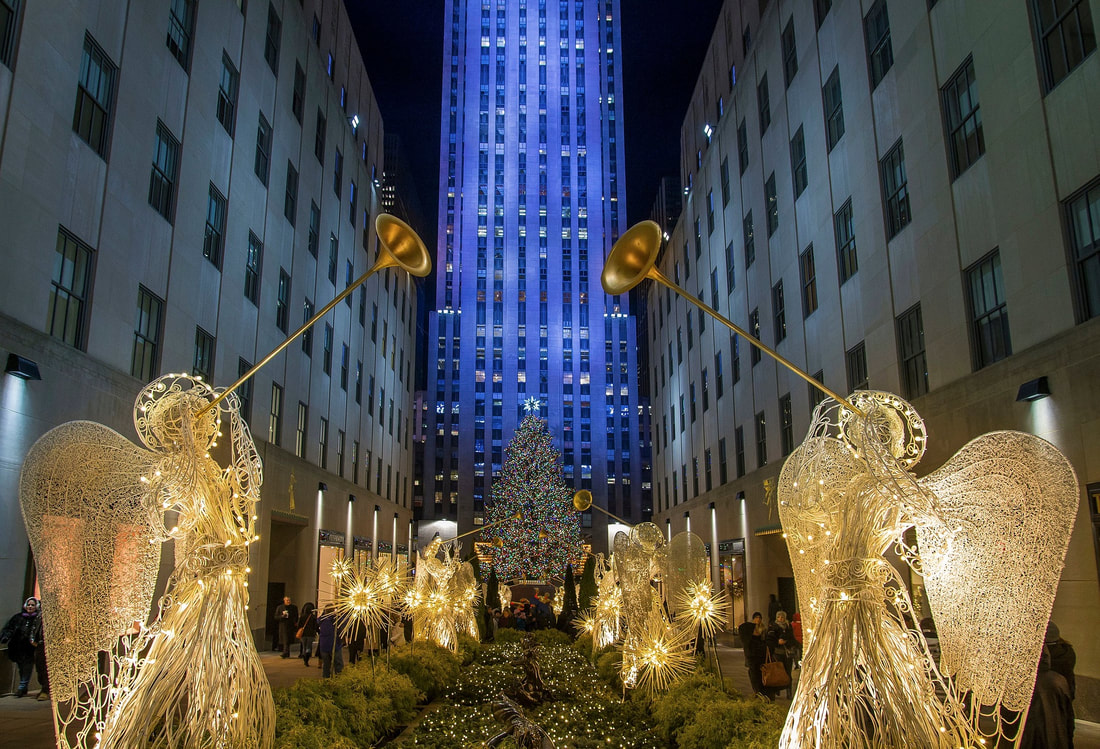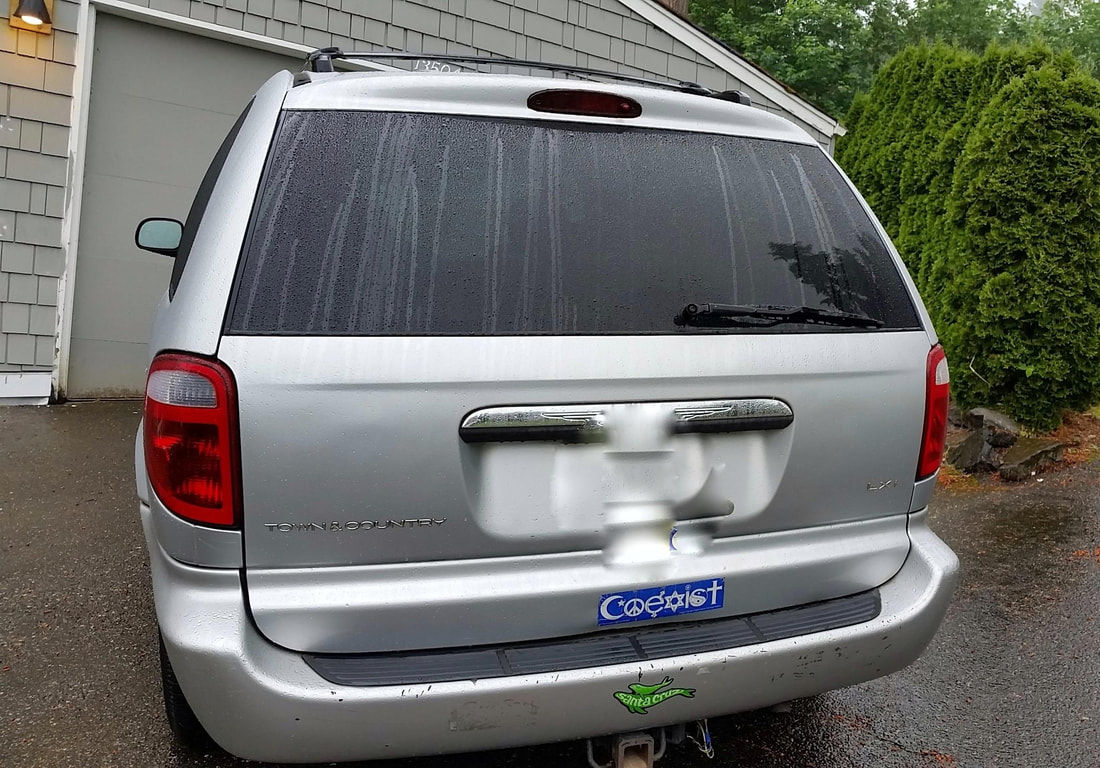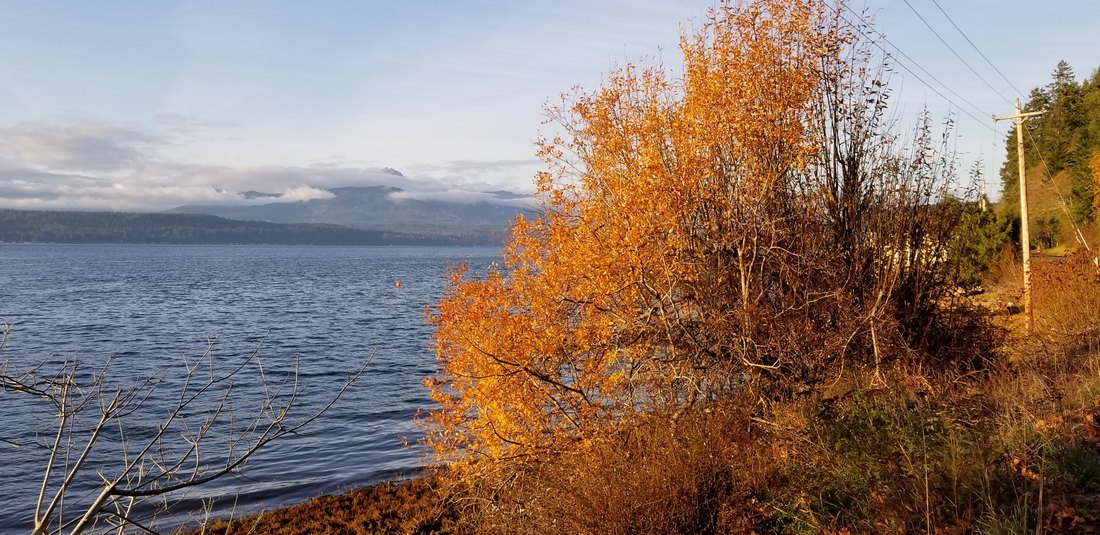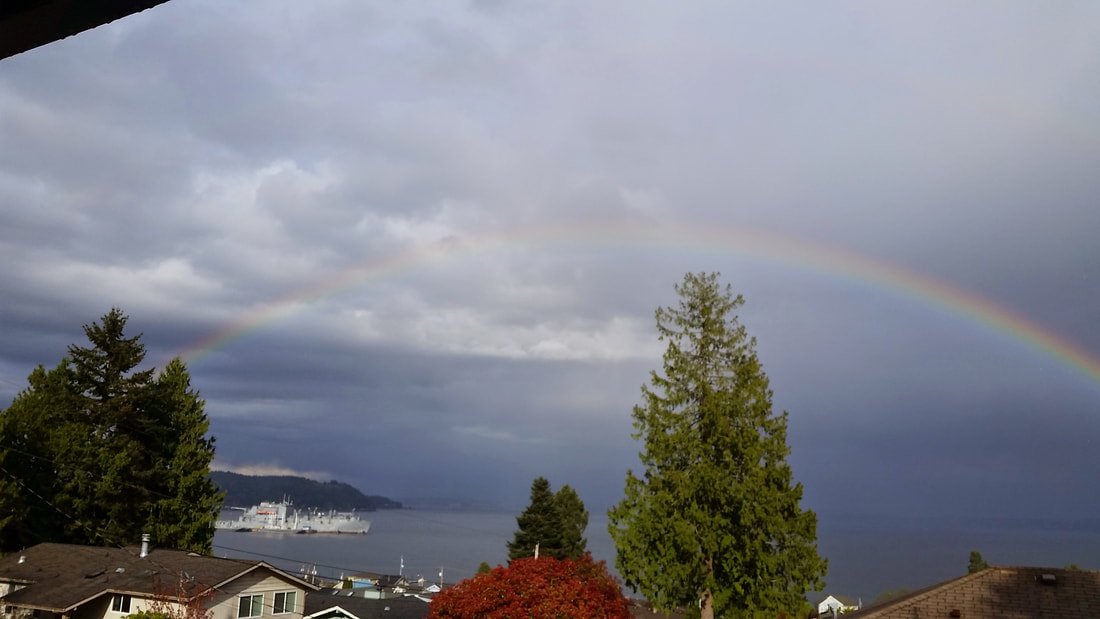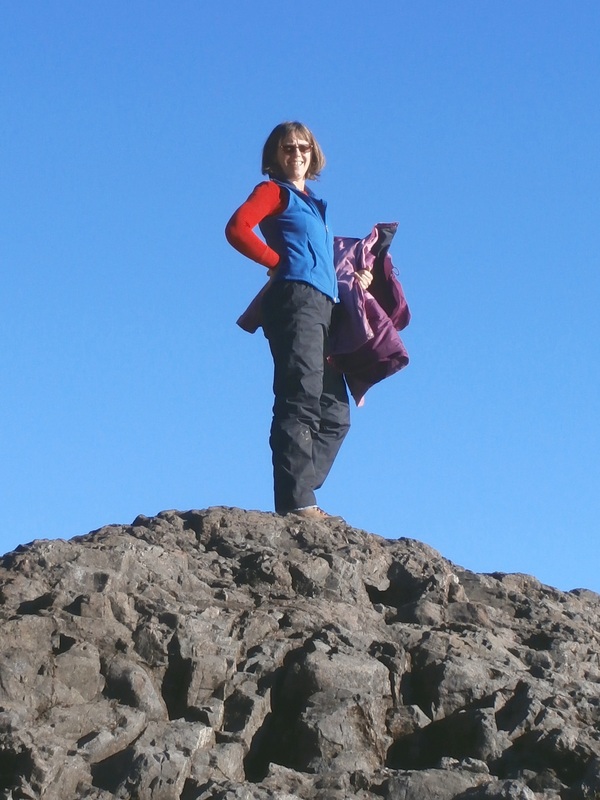|
It was after midnight and I was snuggled under my quilt, plagued with insomnia and a pre-cold sore throat while my husband coughed and rolled. Phone in hand, I was waiting for my melatonin to kick in while I caught up on entries from Abbey of the Art’s “Give Me a Word 2019” e-course when burrow came to mind. What a weird word, and hardly a word to guide a year, I thought, dismissing burrow while I launched Facebook and watched the videos of cat, dog, and baby antics I’d saved over the past few weeks. Two days later I have not left the house, have not dressed other than exchanging one pair of pajamas, socks, and underwear for another. I’ve spent these two days ensconced in my recliner, blanket across my lap, lap desk atop that, MacBook atop that, scrolling through my writing folder, Kleenex in hand, gasping and sighing like a fish on land as I succumb to the virus my husband brought home from our Christmas vacation in Colorado. In my self-imposed isolation and stillness, I’ve edited and submitted nine short stories and eight poems to seven literary journals…well over what I sent out in the rest of 2018 combined. I wrote most of the poems this year, but all the stories have been with me more than a decade. One even dates back to 2001. Over the years, I’ve submitted and revised the stories, but have yet to find the right literary journal for them.
This doesn’t mean my stories are boring, or poorly written, but it does mean I'm not finished with them. Each time I open the file, I re-read the piece closely and edit. Sometimes the changes are small, other times they’re more significant, as I try to find the most elegant words and powerful sentences to convey the heart of the story and personalities of my characters. Delving deeply into writing, one could say I burrow. And when I think of it as something more than digging a hole in which to hide, burrow doesn’t seem quite so strange a word to guide the coming year. In retreating to my recliner with my computer, I’m burrowing by creating a space that accepts and even empowers my circumstances. Right now, I don’t have the energy to take our empty glass bottles to the recycling center, vacuum my car, or cook a week’s worth of dinner—all items on my to-do list—but I do have the energy to write and edit, something I can often put off when I want to be "productive." Right now, I’m ready to burrow under my blanket for an afternoon nap, but I look forward to burrowing in many other permutations in the coming year—delving deeply, making a thorough exploration and examination of the places I inhabit and the interests and activities that call to me. This New Year's Eve I raise a sparkling glass of TheraFlu to 2019, and to all of you who read these words. May the new year bring a word to guide and guard your endeavors (borrow burrow if you so desire). Cheers!
4 Comments
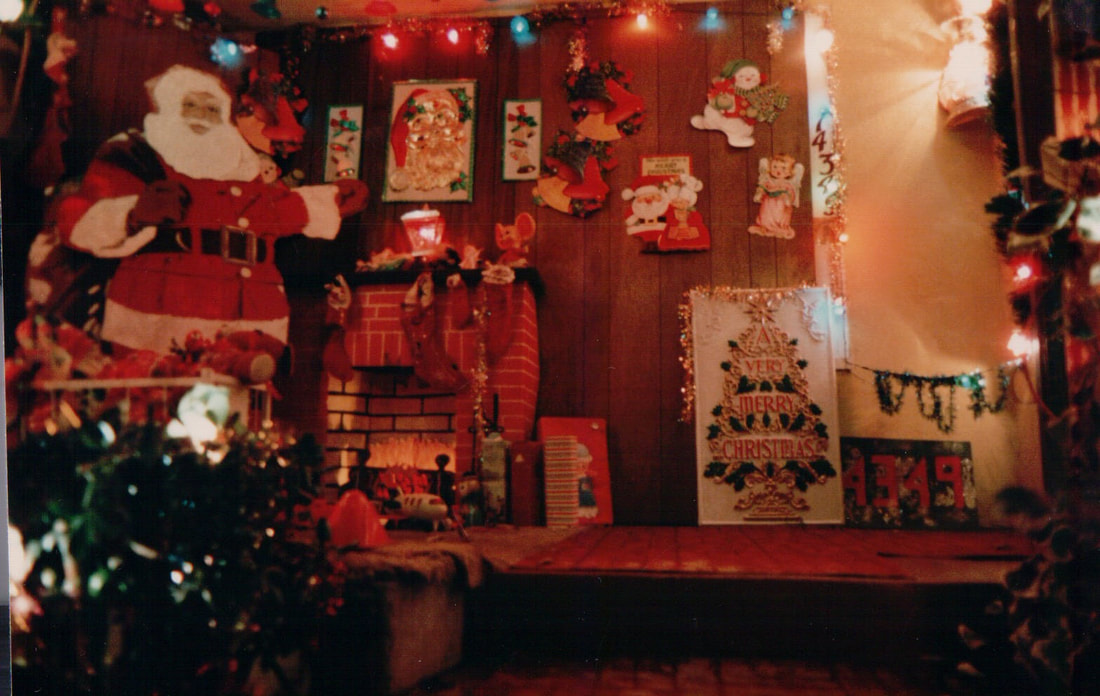 For over three decades now I have knelt at the manger each Christmas, my heart bowed in gratitude before the infant Jesus. Before that, for me, Christmas was a time to exchange gifts, carol at nursing homes, and marvel at the abundance and enthusiasm my grandparents channeled into decorating their homes. It was a time when holiday cheer, feasting, and shopping amid department store Santa Clauses were supposed to be enough. But choruses of silver bells and gifts of clothes and toys were never rich enough, full enough to set my spirit singing. I remember the first Christmas after God laid claim to me in my mid-twenties. That cold sunny morning as I sang carols to myself, it was as though God embraced my wounded heart and held the pain of my childhood splintered by multiple divorces that still bound me in fear, letting me know I wouldn’t have to heal alone. Growing up I knew loss, but I didn’t know how to let something die or mourn its absence. Instead I carried my losses as though they were treasures feeling as if my life was held together with scotch tape and band aids, and that without my wounds, I would have nothing to call my own. That is why I needed the manger, a place where I could stop trying to be perfect in order to guarantee love, a place where I could kneel and give over the things I carried. At first, all I could offer Jesus was brokenness, a mosaic of myself made from shards of abandonment and fear. So that is what I gave the newborn God. And this is what God gave me in those early years of faith: a husband who loved and didn’t leave me and two babies to hold and tend. Holy infants who touched their tiny hands to my cheeks, who cooed and smiled and cried. Infants to cuddle and rock and sing to while I wiped their tears and learned how to mother them. 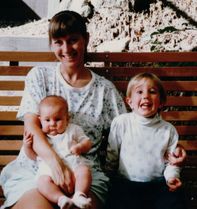 While I mothered my babies, God mothered me. God held me and sang to me and wiped the tears from my cheeks. And slowly, year by year, God took every wound, every hurt and helped me mend. Then ever so gently, God suggested I leave those things that once bound me at the manger along with all the gifts from wise people. Others might lay their burdens at the cross, but my gifts belonged at the birth scene. My awe and gratitude began not with Christ’s sacrificial death, but with the incarnation. I was amazed that such hope was born at all. Such hope in the form of the infant Jesus, trusted to the world. And such hope growing inside myself that I scarcely believed it. Who could imagine a helpless infant born to bring healing? Would he be able to lead us to reconciliation without having to give up his life? And if not, what kind of God would require such a sacrifice from a beloved child? Would I be willing to give up my own child for the sake of others? These are questions I grappled with (and still do) when my own faith was newborn. It took me decades to come to see that even in death gifts can emerge, that the living can be healed by those who are no longer with us, particularly by Jesus—who in a great mystery was born, crucified, resurrected, and somehow still lives. My hope was born from a small seed hidden in darkness, much as a baby journeys from the womb, so it’s right and fitting that I came crawling to the manger in my infant faith and that I return to that barn in Bethlehem each year. I imagine the scene like this: I look into the straw at the beautiful child sleeping peacefully, then ask (because I needed to be told), “Are you sure? Is this for real? Dare I believe?” “Yes,” answers Mary, the mother who is younger yet so much more certain than I. She strokes Jesus’s head. “Yes,” answers Joseph who has built a fire, changed the straw, and found blankets for Mary and the baby. “Oh, yes,” answer the wise men and women who’ve made themselves at home among the barn animals, unwrapping their satchels, revealing herbs, ointments, jewels. “We’re sure,” they say. “We’ve been watching, waiting, paying attention. This is definitely it. The beginning of something incredible.” The women proffer cooking pots and provisions. The savory smell of their cooking begins to compete with straw and hay and animal and smoke. “Will you stay and eat with us?” they ask. I look around the barn crowded with the holy family and wise strangers, their smiling faces shining in the lamplight. The straw is scratchy under my knees; the lip of the manger is brittle and splintered beneath my fingers. I am nobody, just a girl in a faded dress looking for a reason to hope. “Yes,” I say. “Oh, yes. I will stay.” 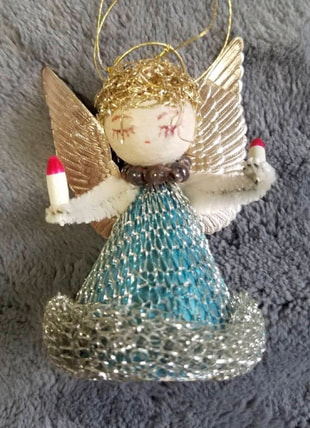 One December afternoon when I was in fourth grade, I sat in the living room in front of our bare Christmas tree, waiting for my sister and my mother to come home so we could decorate the tree together. We had a set of paper angel ornaments, in pink, yellow and blue with fuzzy flocked dots on their dresses. They stood about two inches high with yellow curls stapled to their paper heads and gold paper wings stapled to their backs. Some held guitars, some autoharps like my teacher played, but my favorite were the singing angels who held white microphones with red tips in their outstretched pipe cleaner hands. I carefully unpacked the angels, placed them on risers made of the empty ornament boxes, separating the altos from the first and second sopranos, and sang for them, a one-girl Mormon Tabernacle choir belting out every Christmas carol I knew. And I knew quite a few. I was an enthusiastic school choir member who’d memorized popular carols like Joy to the World, Silent Night, and Angels We Have Heard on High to the fourth verse, and even knew one verse of O Come All Ye Faithful in Latin. Though I was a latch-key kid home alone I didn’t feel lonely singing with my angel choir. Given my enthusiastic refrains, you would’ve thought I was a true believer, a girl who walked the three blocks to church each Sunday, collecting attendance stars and memorizing Bible verses. You’d have been wrong. I went to guitar mass sometimes with my Catholic friend across the street. Less often, I rode with another neighbor to a Protestant church somewhere across the freeway. What I knew about church was that I didn’t belong. About God, I knew even less. I married when I was a twenty-one-year-old college student and that December my mother divided all her old ornaments between my sister and me. When we unwrapped the faded paper angels, she divided the mandolin and harp-playing angels in two equal piles—I hadn’t guessed the instruments quite right. 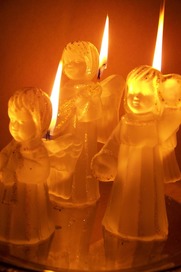 When we came to the microphone angels, both my mother and my sister laughed at my assertion and insisted they were holding candles, pointing to red tips that were obviously flames. I hung my mute angels from my tree, singing carols without benefit of their mikes. The songs still touched something hidden deep within me, but they couldn’t mask my growing longing for something that felt missing from my life. Something a college degree, political activism, good deeds, and a good husband couldn’t satisfy—something I would later understand as the life of the soul. To light a candle, you have to step close to the angel holding the flame. You have to be brave and intentional, and it can be as scary as walking into a church alone and uninvited looking for God. I wanted my angels to carry microphones, to fly around the neighborhood, sing out good news, and give me direction from a safe distance. I was curious about God but cautious. I didn’t want to get too close or personal. But that’s what God does at Christmas, gets down in the straw and muck and has the nerve to insist on birthing something new and wrinkled and helpless smack in the middle of our lives. When I was in my mid-twenties God came to me when I stood naked in the shower one morning. It was as though my angels set aside their microphone candles, grabbed some buckets, filled them with love, and poured them down upon me. You can’t get more personal than that. The prophet Isaiah says we who’ve walked in darkness have seen a great light. I’d add that we who’ve walked in a parched landscape have been drenched with rain. May that light and that love, however and whenever and in whomever it is revealed, shine brightly, pour out abundantly, and nourish our souls. About ten years ago I was up against a deadline: I had two hours left to deliver groceries and “Stocking gifts” to the local Christmas project and food bank in the valley where I lived. The donor parking spots at the building were full, as was the agency parking lot. Driving up the unfamiliar street in my hulking minivan all I saw was No parking signs. No room anywhere. I pulled into the agency parking lot half blocked with orange cones and No Parking signs, hoping to ask one of the volunteers if they knew where I might park. I’m in luck, I thought, when I recognized four of the five folks there. I rolled down my windows and before I could say, “Hi, Mrs. X,” she snapped, “You can’t park here.” The man I didn’t know approached the passenger window. “You can’t park here,” he yelled. Then Mr. X pushed his way forward also yelling, “You can’t park here. We’re expecting a truck.” Shocked by the yelling, surprised they didn’t recognize me, I said, “I just need to turn around,” and shaking inched my minivan forward, pulse thumping in my ears. Then a woman I call Ma yelled to Mr. X, “She can’t park here.” “I’m just turning around,” I said loudly at the same time he said, “She’s going to turn around.” “No, she’s not,” said Ma, “she’s going to hit the posts.” My fight or flight response kicked in and said Fight and Flight! I put the car in reverse and in my nastiest most facetious voice, I shouted as sweat dripped from my armpits, “You know, your welcoming attitude really makes it easy for people to make donations!” I punched the gas pedal, zoomed backward into the street, where thankfully, there was no oncoming traffic, and then took off up the road, named, believe it or not--Love Creek Road. In that moment it should’ve been named Anger and Shame Creek. I desperately wanted to go home, but I had to deliver the groceries and gifts then. I parked several blocks away, clutched my heavy bags in my arms and marched down the street, chest heaving, gulping between sobs. I was deeply ashamed of my outburst and walked past the parking lot as fast as I could, staring straight ahead. I delivered my bags inside to an unmanned counter and instead of ringing the bell to summon a volunteer, I set my bags on the counter, filled out my donation form in silence, and left the building thankful the episode was almost over. As I walked back to my car on the far side of the street, Mrs. X called out, “Hi there, Cathy!” cheerfully as though greeting a long-lost friend. I was shocked. How could she possibly, after she and her husband and the other volunteers had just yelled at me? “Hi,” I said without slowing or looking her way. It was a mean bitter hello, with no trace of friendship or forgiveness. Driving home I tried to figure out how decent people––the volunteers and me––Christians who were out to do good deeds for strangers, failed to extend care and compassion to people not on our lists of the needy. I needed a little grace in that parking lot, a little understanding, a little room to maneuver, a little time to think. Who knows why I didn’t receive it, maybe I was the fiftieth car that’d disrupted their preparations. Maybe they were cold and hungry and the long-expected truck was late in arriving. I thought about complaining to the project coordinator—whose name graced all the appeals for gifts and food mailed to my home and church—or writing Mrs. X and telling her why my “Hi,” had been so malicious, but I wanted to get beyond my hurt without blaming others. I didn’t want to hold onto the wound and to the way it made me feel sick in the bones. I needed to extend a little grace to others and myself, so I prayed and took my Relaxed Wanderer Chinese herbs and calmed down eventually. Later I called my prayer partner and after I recounted the incident, she said with her usual wisdom, “God always reminds us that we’re human.” When I think about Christ’s coming, I think of a line in Joy to the World, “Let every heart prepare him room.” If Christ was there in the parking lot, and I’m sure he was, I did a rotten job of preparing room. I was reminded painfully of my human failings. Thankfully God has more hands and feet in this world than mine, and thank God I’m not alone in falling short—in sin. Our ancestors in the faith were just as human and imperfect. Back when Jesus arrived folks were expecting a different kind of Messiah and overburdened innkeepers were turning away lodgers left and right. Joseph and Mary, tired and hugely pregnant, needed a little grace when they arrived in Bethlehem to pay taxes. And that’s what they received a meager scrap of grace, a tiny bit of room, a cow stall out back. It was the best that innkeeper could do, and because God can take our pittance and make it suffice, it turned out to be enough. As we journey toward Christmas with all the busyness and stress even our desires to good can bring, let every heart prepare some room, and may that some be enough. Prepare the Way
“Prepare the Way of the Lord,” cry the prophets that we might heed their words and repent that we might join our voices and our hands and hearts and feet with the faithful calling out in the wide wilderness of our cities and towns-- “Prepare the way of the Lord!” Prepare the Way of the Lord and the way for all God’s servants-- Make their paths straight and their rough roads smooth fill the valleys of despair and level the mountains of inequity feed the hungry, clothe the poor heal the sick, pray for one another that all people near and far may see and hear, know and touch the salvation of our God. Highway 106, Union, WA, November 16, 2018, 3 p.m. My hiking boots pad along the asphalt a rhythmic and steady thwap thwap accompanied by the swish swish of my arms swinging in my stiff slippery coat and the tinny twang of my zipper head rattling against the bottom snap as my legs stretch forward. I step onto the shoulder and gravel crackles and crunches under my feet as I make way for the vehicles that whir and whoosh, engines throbbing, tires rumbling toward me from ahead and behind-- steady tone droning that peaks in volume then recedes as machines speed by one after another: school bus, pickup, SUV. In the quiet gaps between cars other sounds reveal themselves—though it hasn’t rained in days water flumes down the steep hillside tumbling forceful as a waterfall through an open troughed pipe into the drainage ditch sluicing alongside the road. Below the armored embankment alongside Anna’s Bay
the water glugs and gurgles against the shore rising to cover the stink of rotting marine life and sea grass uncovered in the morning’s low tide. An eagle, unseen utters its stuttering cry from the evergreens towering above-- high pitched staccato that belies its commanding appearance. The tiny belted kingfisher ricochets from power line to cedar to pier piling with voice bursting loud and rapid fire like bullets. Seagulls float in the water ar-ar-ar-guing their squawking frantic, insistent and grating. I turn to walk back toward home sun slanting low in the sky illuminating all I’ve just heard. Clouds scudded at high speed coating the sky gray. Branches bent and bowed, leaves surrendered to the gusts, empty trash cans rolled into drainage ditches. Jets on departure from SeaTac sliced the clouds silently overhead, their engines no match for the noise heralding the coming storm.
|
I began blogging about "This or Something Better" in 2011 when my husband and I were discerning what came next in our lives, which turned out to be relocating to Puget Sound from our Native California. My older posts can be found here.
Categories
All
Archives
September 2023
Newsletters |
